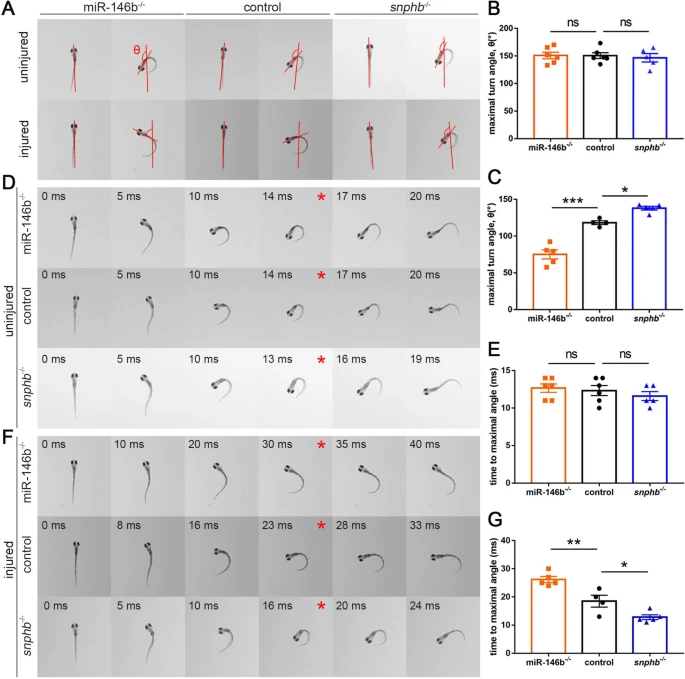Fig. 6 Escape response tests showed the positive effect of the miR-146b-snphb axis on M-cell function recovery. A Representative images of initial orientation and maximal turn angle of zebrafish larvae in the uninjured and injured groups. Red lines indicate the orientation before and after the escape behavior. B, C Statistical analysis of the maximal turn angle. Uninjured: control: 150.7 ± 5.3°; miR-146b-/-: 151.0 ± 6.0°; snphb-/-: 146.8 ± 7.6°; ns, not significant. Injured: control: 118.4 ± 2.6°; miR-146b-/-: 75.08 ± 6.1°, *** P < 0.001; snphb-/-: 138.1 ± 2.5°, * P < 0.05. Assessed by ordinary one-way ANOVA/Tukey’s multiple-comparisons test. Error bars indicate SEM. D A series of images from the escape behavior of zebrafish larvae in the uninjured and injured groups. Red asterisks indicate the maximal turn angle. E, F Statistical analysis of the time to maximal turn angle. Uninjured: control: 12.33 ± 0.7 ms; miR-146b-/-: 12.67 ± 0.6 ms; snphb-/-: 11.6 ± 0.6 ms; ns, not significant. Injured: control: 18.5 ± 2.1 ms; miR-146b-/-: 26.2 ± 1.1 ms, ** P < 0.01; snphb-/-: 12.8 ± 0.9 ms, * P < 0.05. Assessed by ordinary one-way ANOVA. Error bars indicate SEM.
Image
Figure Caption
Acknowledgments
This image is the copyrighted work of the attributed author or publisher, and
ZFIN has permission only to display this image to its users.
Additional permissions should be obtained from the applicable author or publisher of the image.
Full text @ Neurosci. Bull.

